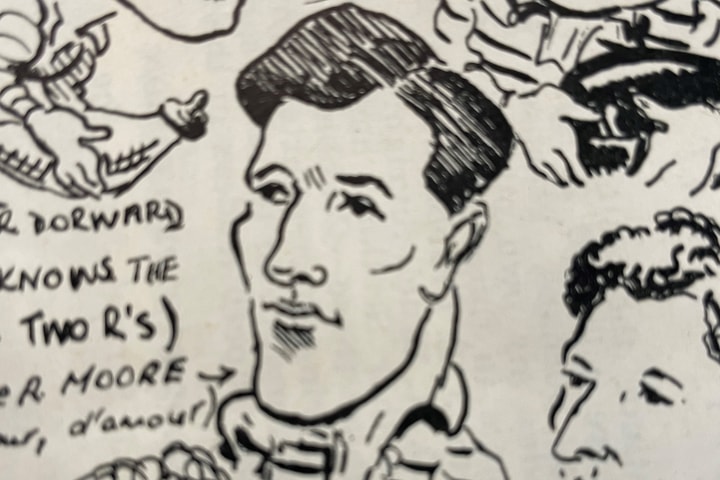Sports journalist Hugh Godwin tells us about his new book, 'The Flying Prince: Alexander Obolensky'…
On a still March day in 1940, a great British sporting hero perished. Prince Alexander Obolensky had lived fast and died young, as a flyer on the rugby field and as a pilot in the Royal Air Force, killed in the service of his adopted country. He was a refugee from a noble family in Russia who fought to be accepted as, and live the life of, a quintessential Englishman.
So, what was Obolensky's story? How did he come to be playing rugby for England on that famous January day in 1936 when, as a 19-year-old student making his international debut, he scored two unforgettable tries in a then record win over the All Blacks. How and why did he catch the public imagination? What kind of life had he led, before and after that never to be forgotten day? What destiny lay unfulfilled when he died, tragically young at the age of 24, crashing his Hawker Hurricane fighter? Simple questions that proved far from easy to answer. After some initial inquiries confirmed only sketchy details of his life, I started researching in earnest around 2015, fitted around my work as rugby correspondent of the 'i' newspaper. The result, eventually, was a biography, 'The Flying Prince', published in November 2021.
The story of Obolensky told often in newspaper and magazine articles and references in books was of a playboy celebrity socialite, quaffing champagne and guzzling oysters before rugby matches, and sprinting to success. And all of this was true: 'Obo' loved parties and the company of women, and by the fateful summer of 1939 he was dining with the niece of Neville Chamberlain, putting him close to 10 Downing Street on the eve of war.
I interviewed Obolensky's surviving relatives and visited the archives of Oxford University and the RAF, of Brasenose College and the airbase at Martlesham Heath, and his schools in the English Midlands. I tracked down relatives of his friends and team-mates and contemporaries from the 1930s.







